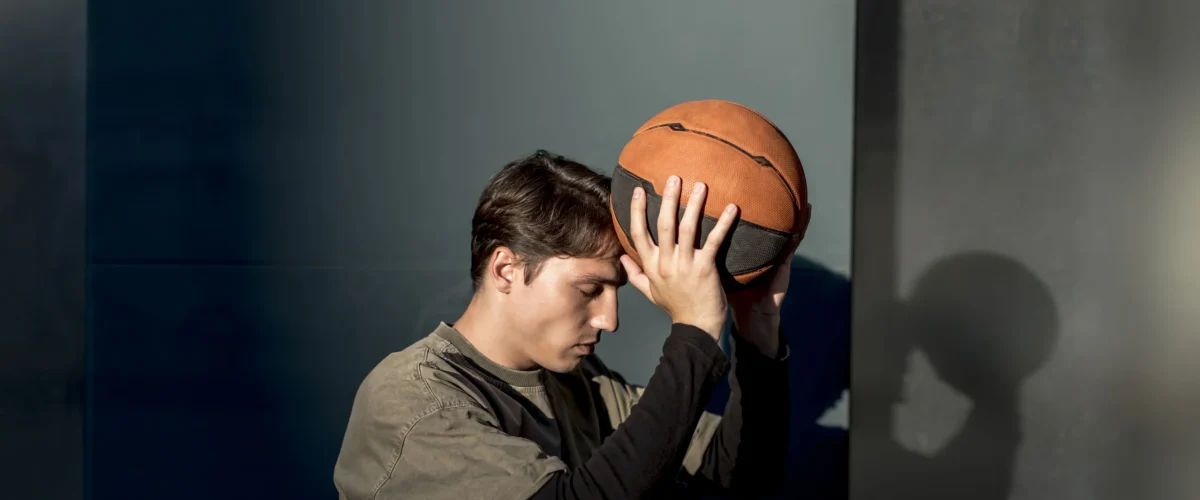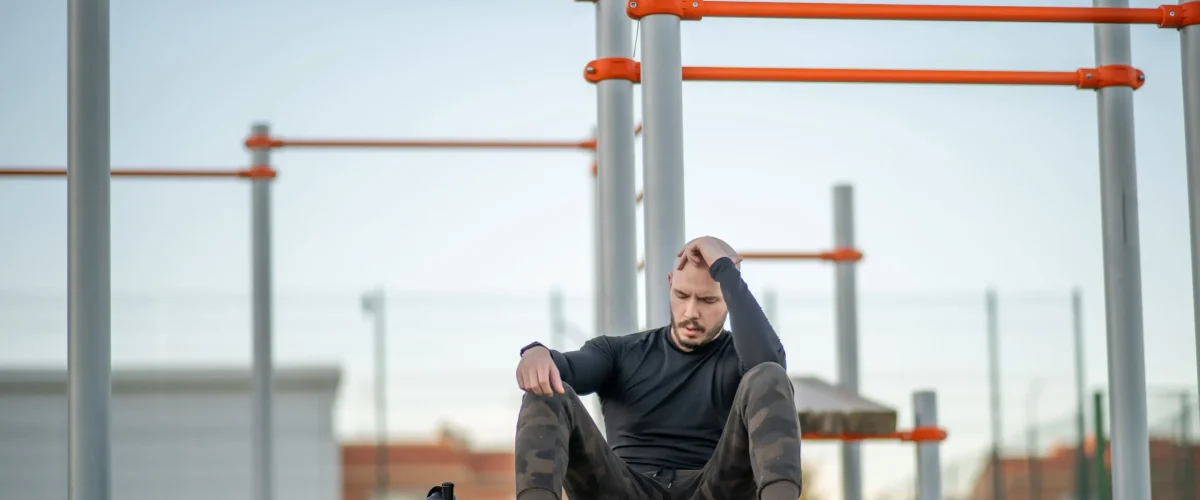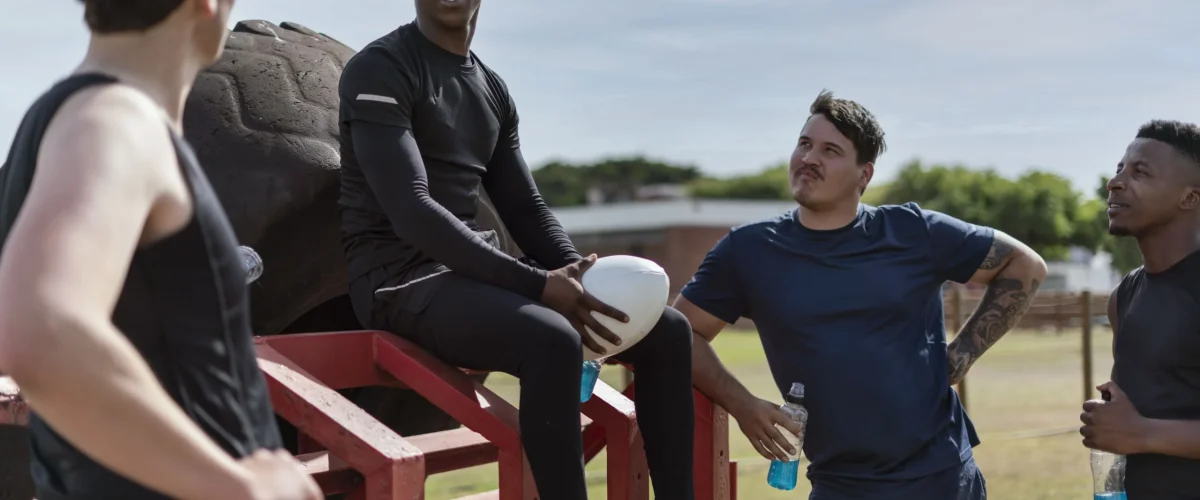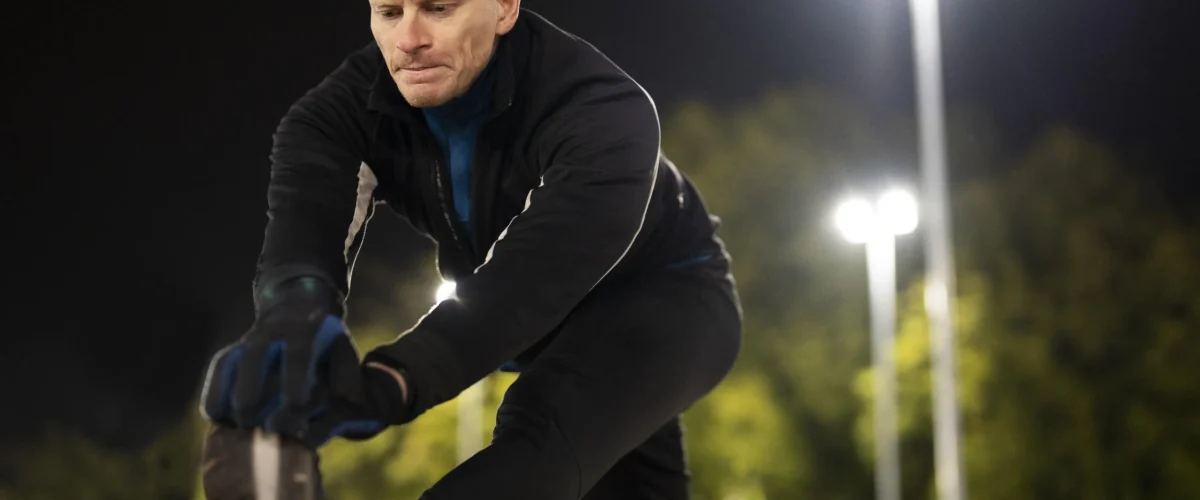How to Deal with Failure Through Sports and Build Mental Strength

Introduction With Real-Life Story
In a small town, there was a young athlete named Tommy, a passionate soccer player who had dreams bigger than the horizon. Ever since he could walk, soccer had been at the center of his world, shaping his childhood and fueling his aspirations. He envisioned himself donning his school colors and leading his team to victory, scoring magnificent goals, and becoming a sporting hero in the eyes of his friends and community. However, when he finally made it onto the field and put on that cherished jersey, the reality of competition hit him hard.
Tommy’s journey was not a smooth road paved with victories. Instead, it was a challenging path filled with heart-wrenching losses, missed opportunities, and the bitter taste of failure. In his first season, Tommy faced an unrelenting string of disappointments. There were moments when he missed open goals and felt the disappointed gasps of his teammates echo in his ears. Other times, he found himself warming the bench during critical matches, watching as his hopes for glory slipped away. Each game ended in frustration; he felt as if the universe was conspiring against him and that he was meant to be a loser on the field.
After one particular match where everything went wrong, where he missed yet another crucial chance, and his team lost 3-0, Tommy sat alone on the sideline, enveloped by a heavy fog of despair. He watched as his teammates celebrated the small victories and shared laughs, while he could do nothing but replay his mistakes over and over in his mind. “Why can’t I be like them?” he pondered, as a feeling of inadequacy seemed to consume him.
But as Tommy sat there, he was approached by his coach, a wise figure who had seen many young athletes rise and fall over the years. The coach shared stories of legendary players who had once faced crushing defeats but had used those experiences to fuel their ambition. Tommy listened intently, realizing that failure was a part of every athlete’s journey, even the greats. Inspired by this newfound perspective, he vowed to change his approach. He would accept his mistakes rather than run away from them, realizing that every setback was a learning opportunity.
With renewed determination, Tommy committed himself to practice like never before. He began to attend extra training sessions, each time pushing himself beyond his limits and focusing not only on what he needed to improve but also on learning from each failure. He would analyze his past games, identifying where he had gone wrong. He learned to see his missed goals not as evidence of his incompetence but as valuable lessons wrapped in disappointment. Instead of dwelling on the past, he channeled his energy into being consistent on the practice field.
Tommy scored his first goal during a competitive match, and the joy he felt was unparalleled. It felt like the culmination of all the effort, sweat, and sleepless nights spent honing his craft. That victory ignited a flame within him, affirming that persistence truly pays off. With each goal he scored, he etched the message deeper into his mind: failure is not the endpoint; it’s an integral chapter in the story of success.
The true test of his growth came when his team made it to the finals of the state tournament. As he stepped on the field, gripped by a mix of excitement and nerves, Tommy realized this wasn’t merely a game; it was a celebration of his journey, a testament to his resilience. That day, he scored the winning goal, not only securing the championship for his team but also proving to himself that he was indeed capable of greatness. For Tommy, the journey through failure had forged him into a stronger athlete, and he stood proudly in the glow of triumph, understanding that every loss had contributed to building his character.
Ultimately, he looked up to the cheering fans, friends, and family, and in that moment, he knew that failure was never the end; it was merely part of the larger path to achievement. The lessons learned through struggle were the groundwork of his success, highlighting that the effort mattered more than the outcome.

Why Failure is Important in Sports
Every athlete has faced failure at one point or another, and the questions that arise from these experiences can often shape their future. What if we never failed? Would we ever improve? Considering this, it becomes clear that without the bitter taste of failure, the sweetness of success would never be realized. Every setback serves as a crucial turning point, offering insights that victories can’t teach.
In sports, failure can spark profound transformations. When athletes experience failure, it forces them to confront their weaknesses and challenges them to rise above their circumstances. This is especially important in a culture that frequently places a premium on winning at all costs. Early and frequent victories can inflate an athlete’s ego to an unhealthy degree. Without the humbling experience of failure, they may become complacent, believing they have nothing left to improve upon.
Great champions often stumble before they rise to greatness. The journey of Michael Jordan illustrates this perfectly. Many young players would have been devastated when the basketball legend was cut from his high school team early in his career. Instead of allowing that failure to define him, he used it as motivation. He practiced relentlessly and committed himself to understanding the game more deeply. Jordan accepted his shortcomings, which eventually helped him become one of the greatest of all time.
Consequently, athletes must learn to embrace failure as a signal, not a stop sign. It is a sign that there is space for development, enhancement, and education. Each failure presents a question of what can be done better next time. Have you ever noticed how athletes who have overcome obstacles often grow more profoundly from those experiences? They transform adversity into resilience, using it as fuel to propel them toward their goals.

Common Problems Athletes Face After Failure
Despite the potential for growth that failure holds, many athletes struggle with the aftermath in various ways. It’s a familiar voice that whispers negative thoughts, convincing them that they are not good enough and that their worth is tied to their success. Athletes may perform hesitantly as a result of this cloud of self-doubt, questioning themselves at crucial times.
Another common issue is the fear of repeating mistakes. This fear can be paralyzing. Athletes may become so preoccupied with the idea of failing once again that they lose focus on what they need to accomplish in the present moment. This anxiety not only affects their performance but also takes the joy out of playing the sport they love. Instead of flowing with the game, they become trapped in their own minds, frozen by the possibility of failure.
Additionally, pressure from external sources such as parents, coaches, or even fans can amplify the negative feelings that arise after a failure. While the intentions of these support systems may be well-meaning, high expectations can lead to immense stress for the athlete. Young players can feel as if their value is contingent on their achievements, which can create a toxic environment. Under this weight, the desire to please others can overshadow the real reasons for their passion for the sport.
Overthinking becomes another hurdle; it’s a common trap where an athlete constantly replays their failures in their mind, leading to overanalysis rather than constructive reflection. This continuous cycle of self-criticism can result in burnout, where an athlete feels mentally drained and struggles to regain their motivation to play.
Lastly, many athletes may choose to quit prematurely after facing failure. Disheartened by their experiences, they abandon their dreams, believing that the struggle is too great to bear or that they simply lack the necessary talent. This impulsive decision overlooks the potential growth that comes from persevering through adversity.

How to Handle Failure in the Right Way
Embracing your failures allows for a deeper understanding of your journey. It’s essential to acknowledge that mistakes are a natural part of any athlete’s path, and they do not define you.
Next comes the need to review what went wrong, but without shifting blame to others. This introspection can be particularly challenging, yet it is vital for growth. Evaluate your performance critically. This honesty fosters a stronger understanding of your skills and areas needing improvement.
From every failure, aim to learn one thing. The learning process may become less daunting and easier to handle with that one focus. Deciding to concentrate on one lesson not only simplifies reflection but also allows for clearer direction in future practice sessions. For instance, if you recognized that your passing accuracy was off, dedicate efforts to sharpen that skill moving forward.
Talking about your failures plays a vital role in processing them. Engaging in conversations with a coach, friend, or teammate can provide invaluable perspectives that you may not have considered. Sharing your thoughts and feelings allows for collective problem-solving. transforming personal struggles into shared learning experiences. The connections forged during these conversations can enhance team dynamics and build trust.
Building mental toughness is paramount in any athlete’s journey, and it doesn’t happen overnight. Start with small steps, focusing on strengthening your mindset bit by bit. Implementing mental training techniques such as visualization or breathing exercises can help cultivate resilience over time. You create a strong foundation with every minor triumph that will help you deal with obstacles in the future.
Another crucial action is to change your practice plan based on what you’ve learned from your failures. Learning doesn’t stop once you’re off the field; it carries through into your training regimen. If specific skills showed weaknesses in past games, dedicate extra training to those areas. Adapting your routine reflects your commitment to continuous improvement and shows that you take your growth seriously.
Lastly, reframe your perspective on failure by seeing it as feedback rather than a final result. Realizing that every setback offers insights can empower you to take control of your development. Each misstep you encounter becomes not a mark of disgrace but an opportunity to enhance your skills, refine your understanding of the game, and grow into the athlete you aspire to be.
As motivational speaker John C. Maxwell stated, “Failing forward is not a misnomer; it’s a mindset.” Cultivate this mindset, and you will discover that each failure brings you closer to your goals.

Mindset That Turns Failure into Growth
Adopting the right mindset is crucial when navigating through failures. There is a fundamental difference between a fixed mindset and a growth mindset, and understanding this distinction can profoundly impact an athlete’s journey. “I lost, so I’m not good enough” is one of the thoughts that can keep athletes in a downward spiral.
In contrast, a growth mindset, which embraces the idea that abilities can develop through effort and perseverance, offers a pathway to resilience. Phrases like, “I lost, so now I know where to improve,” foster a sense of hope and motivation. Athletes who adopt a growth mindset are more likely to rise after their losses, ready to learn and grow, rather than remaining stuck in self-doubt.
The number of elite athletes who exhibit a growth mindset is astounding. Recall the perseverance of Serena Williams, who has lost but always comes out stronger. She embodies the belief that every loss is an opportunity to learn, adapt, and become a better player. Williams often reflects on her missteps, using them as a foundation for her future training and approach.
Understanding failure as a stepping stone rather than a barrier prevents athletes from feeling defeated; it sets the stage for an ongoing journey of improvement and self-discovery. Embracing setbacks allows athletes to harness their strengths more effectively and develop deeper insights into their performance.
Helping Athletes Deal with Failure: For Coaches and Parents
Coaches and parents play a pivotal role in shaping how young athletes handle failure. For coaches, it’s vital to create an environment that prioritizes learning over winning. Instead of shouting at players during moments of mistakes or frustration, a constructive approach is to guide them through the process, helping them understand where they went wrong and how they can improve. Encouraging dialogue during practice fosters a sense of collaboration, where error is seen as a natural part of becoming better.
Parents also hold significant influence in how their children perceive their failures. Rather than focusing solely on victories, emphasizing the importance of effort, determination, and resilience is key. Honor the learning process regardless of the result, because the athlete’s experience is enhanced by the journey. When children feel supported in their efforts, there’s a greater chance they’ll develop a love for the sport, regardless of the scoreboard.
Establishing an open environment where making mistakes is normal can create a healthy foundation for development. Athletes must feel they can openly discuss their failures without fear of judgment. Encourage young players to enjoy learning from every match, reinforcing the idea that growth is not just a byproduct of success but a fundamental aspect of the sport.
By weaving these values into training and support systems, both coaches and parents can contribute to nurturing resilient athletes who are better equipped to handle failures. Helping them perceive setbacks as chances to improve solidifies their resolve and determination, ultimately helping them flourish in their athletic pursuits.

NOTE THIS!
- Every athlete fails; that’s normal
- Failure teaches lessons success never can
- Don’t quit because you failed once; keep going
- With every mistake, you grow
- Failure + Reflection = Real Progress
- Talk to someone; don’t carry failure alone
Final Warm-Up and Motivation for Every Athlete
As we conclude this motivational journey, remember that the experiences you face today, including every single failure, are merely laying the groundwork for your future success. Each setback stands as a reminder that every great athlete has faced adversity, and it is through these moments that the strongest bonds of character are forged.
Failure does not define you; instead, it reveals the warrior within. Today’s failure could power tomorrow’s victory. Allow that knowledge to inspire you, reminding you that every stumble is an integral part of your journey, not a detour that leads to destruction, but a vital turn that gets you closer to your destination.
